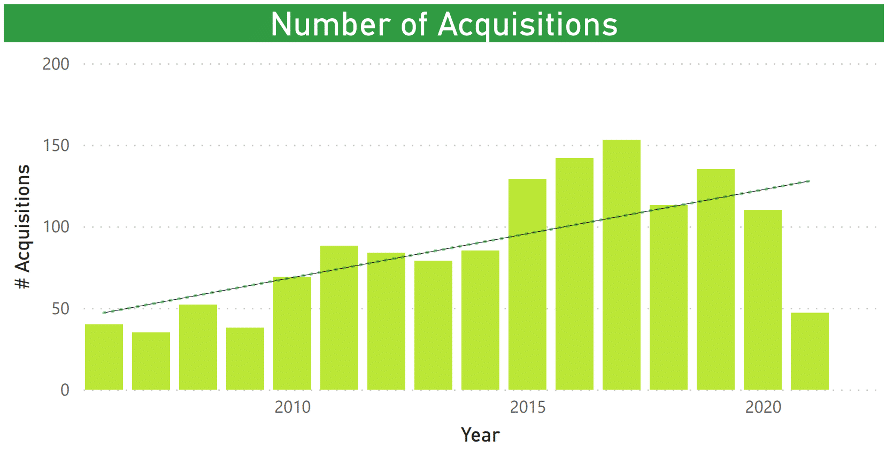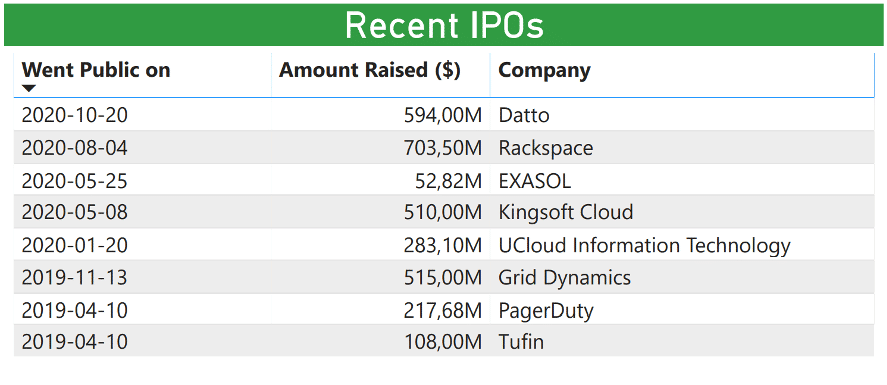What is the “Cloud Computing” sector?
As described by Salesforce, cloud computing, simply defined, is a technology that enables remote access to software, file storage and data processing over the Internet as an alternative to running on a personal computer or local server. In the cloud model, applications do not need to be installed locally on computers. In other words, it could be defined as offering services through the connectivity and scale of the Internet via the cloud.
As well described by OpenSistemas, with Cloud Computing it is not necessary to install any application on the computer itself, and yet the computer will have access to the different services required. A very clear example of Cloud Computing is email. We use e-mail and we have not had to download any application, that is Cloud Computing; a fast, on-demand and secure alternative.
There are three types of cloud computing: public, private and hybrid cloud. The first of these occurs when a third party offers a service to different customers who share the same infrastructure and share the costs between them (server, administration, security, communications, etc.). The private cloud is used by companies, generally large ones, which consume a lot of resources and need specific adaptations ("customisation"). The hybrid cloud, finally, is the combination of solutions on the Internet and hosted on the customer's premises.
Scope and coverage of the study
This industry analysis covers 5,325 companies worldwide labelled within the "Cloud Computing" category.
All data on companies, acquisitions and founding rounds were extracted on 15 April 2021. Deals, rounds, and companies founded after this date have not been included.

Principal investment trends
Analysing the number of companies created over the last 15 years, it can be seen that the sector boomed, reaching a maximum of 621 companies created in a single year, 2012. Since then, there has been a notable and quite aggressive decrease, reaching only 70 companies founded in 2020, although it is true that this was an atypical year due to Covid-19. It should be noted that so far in 2021, 12 companies have been created, indicating that the number will continue to fall, as at this point in 2020, 37 companies had already been created.

On the other hand, analysing the funding received in the sector, we observe something much more stable. Apart from 2016, a year in which almost 10 billion dollars were raised, thanks to giant rounds carried out by Inspur Cloud (almost 3 billion dollars raised that year) or Spotify (1 billion dollars), the other years have maintained a constant collection of around 6.5 billion dollars.
In terms of the number of rounds, there has not been a significant drop, as revenue has not been affected. At the same time, the current year, 2021, despite having only 74 rounds, has already raised almost half as much as in 2020. This is due to a sizeable round by Box, which raised 500 billion dollars on 8 April. Finally, look at the trend lines. These show a rather gradual growth, showing a growing and almost mature sector.

In terms of the acquisitions that have taken place in the sector, with the acquiring company belonging to the Cloud Computing sector, the visual shows a marked growth, as the trend line makes clear. With a maximum of 153 purchase operations in 2017. It is worth mentioning 2021, which has already seen 47 acquisitions, marking a very good start to the year. Finally, mention should be made of 2020, which, despite having been an abnormal year due to the pandemic, has maintained its values quite well, with 110 transactions.

Finally, this table shows the most recent IPOs in the sector. It should be noted that none has yet been made in 2021. It should also be noted that most of the companies in this table (Datto, Rackspace, Grid Dynamics, PagerDuty and Tufin) are US companies. And the other three are Asian companies: Chinese (Kingsoft Cloud and UCloud Information Technology) and Japanese (EXASOL). This gives a perfect picture of how the Cloud Computing sector is distributed across the globe.

